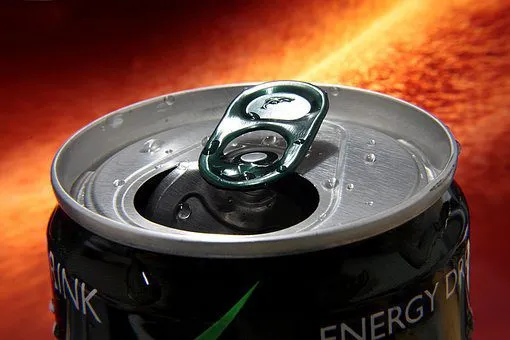7 Side Effects of Energy Drinks on the Brain
Energy drink is an excellent solution that has been used for years as an energy booster, and claims to combat mental fatigue and increase mental awareness. It tickles your taste buds and gives you a rush of caffeine. But at what cost?
Giving your body extra energy and getting a mental boost comes at a price. A price more than quenching your thirst with a can of energy drink. As the manufacturers laugh their way to the bank, consumers are robbed of their mental health.
If you love energy drinks, it is time to pause and consider all the risks. In addition to boosting your energy levels, these beverages can also trigger side effects in your brain. They may negatively affect your cognitive ability if consumed repeatedly or in large quantities.
Below are the potential side effects of energy drinks on the brain.
1. Can Lead to Traumatic Brain Injury
Energy drinks contain ingredients that, if taken in large quantities, may alter a person’s behavior. A study published by the scientific journal PLOS ONE discovered that there was seven times likelihood that teenagers who suffered traumatic brain injuries had consumed four or more energy drinks in the past week than those with no history of brain injury.
Similarly, researchers also found out that teens who sustained traumatic brain injury (TBI) within the past year were more than twice likely to have taken alcohol mixed with energy drinks than those who suffered a TBI in the previous year.
If you consume energy drinks every day, you’re significantly increasing your risk of traumatic brain injury.
Summary
Consuming energy drinks everyday increases your risk of getting a traumatic brain injury. This is because of the high caffeine content present in energy drinks.
2. Insomnia
The main reason people consume energy drinks is to increase alertness and counter the effects of sleepiness. Energy drinks are packed with caffeine, which is known to disrupt sleep patterns. Too much caffeine can make falling and staying asleep very challenging. It can lead to insomnia and increase stress and anxiety levels.
Caffeine takes about 30 minutes – 1 hour to peak in the body. The effects last depending on the dosage of the caffeine and other factors like age and sensitivity to caffeine. Caffeine in energy drinks can stay in your body for many hours and may lead to sleep disruption.
Energy drinks also contain other stimulants and ingredients like guarana and taurine that can disrupt sleep even more. It is best to avoid energy drinks if you have trouble sleeping. And if you want to consume them before a night out, limit the amount you consume.
Summary
Energy drinks are packed with caffeine that disrupts sleep patterns making it difficult to fall and stay asleep.
Related: Symptoms of too many energy drinks
3. Brain Hemorrhage
Caffeine is the main ingredient in energy drinks which contains up to 180 mg per serving. According to the national institute of health (NIH), having too much caffeine can lead to problems with the blood vessels and heart health.
In one study, researchers found that consuming energy drinks puts you at a higher risk for a subarachnoid hemorrhage, also known as a brain hemorrhage. A brain hemorrhage occurs when you rupture blood vessels in your brain. This chronic illness is usually caused by high blood pressure or trauma to the brain.
Summary
Energy drinks contain caffeine which increases blood pressure. This may lead to a rupture in the brain vessels, causing brain hemorrhage.
4. Stroke
Although the link between stroke and energy drinks is not entirely clear, some evidence suggests that consuming energy drinks may be associated with an increased risk of stroke. According to a study published in the Journal of the American Heart Association, consuming energy drinks that have high levels of caffeine and other stimulants may be associated with an increased risk of stroke.
Consuming energy drinks increases the blood pressure hence increasing the risk of stroke. This is because of the reversible cerebral vasoconstriction syndrome, which restricts proper supply of blood to the brain. Although this syndrome is reversible, it does not reverse in some cases, and in other rare cases, it can cause death.
Summary
Energy drinks have been associated with stroke. This is because of the increased blood pressure, which increases the risk of a stroke.
5. May lead to Seizure
In a study published by PubMed, the neurotoxic effects of caffeine, sugar and taurine, ingredients in energy drinks, may provoke a seizure. While several studies are still underway, several seizure cases have been reported after consuming an energy drink.
Available research has shown that people who already have a seizure disorder and consume excessive energy drinks may be at an increased risk of having a seizure or a more severe seizure. This is because energy drinks disrupt brain activity by increasing blood flow and brain activity.
People with a seizure disorder should avoid consuming energy drinks to reduce their risk. However, people without a seizure disorder who consume energy drinks may also be at an increased risk of having a seizure.
Summary
Energy drink is made from ingredients such as sugar, caffeine, and taurine, which may provoke a seizure. They disrupt the brain activities, which increases blood flow to the brain, causing seizures.
6. Anxiety
It may come as a surprise that energy drinks can cause anxiety, but there is evidence to suggest that caffeine can increase feelings of anxiety. Caffeine stimulates the nervous system, which increases blood flow and heart rate. If taken in access, energy drinks could lead to effects such as anxiety.
For people who have existing symptoms of stress, depression, and anxiety, energy drink may worsen the symptoms. It Is also good to know that higher doses of caffeine from taking more energy drinks may spur a full-blown panic attack.
Summary
Taking energy drinks in higher amounts increases the heart rate and the blood flow. This leads to anxiety and worsen other symptoms like depression and stress.
7. Addiction
Caffeine is a known addictive substance. Energy drinks are addictive and stimulate the brain to release dopamine. Regular caffeine consumption can lead to caffeine dependence. This means that your body comes to depend on caffeine to function. Many people are unaware that they are addicted to caffeine because it is so common.
If you consume energy drinks daily, you may reduce your caffeine intake to avoid developing an addiction. However, if you consume energy drinks occasionally, you are unlikely to become addicted.
Summary
Taking energy drink regularly leads to addiction. This is because of the high caffeine levels which triggers the brain functioning.
Conclusion
The high-caffeine content found in many energy drinks presents a particular risk. Too much caffeine can disrupt sleep patterns, increase your heart rate and blood pressure, and lead to dependence. These drinks can also cause anxiety, brain hemorrhage, and stroke.
If you must take an energy drink, consider doing it in smaller quantities so as not to alter your brain functioning. However, consider using other healthy alternatives like a balanced meal that contains protein and carbohydrates to stay focused and alert without the side effects.













